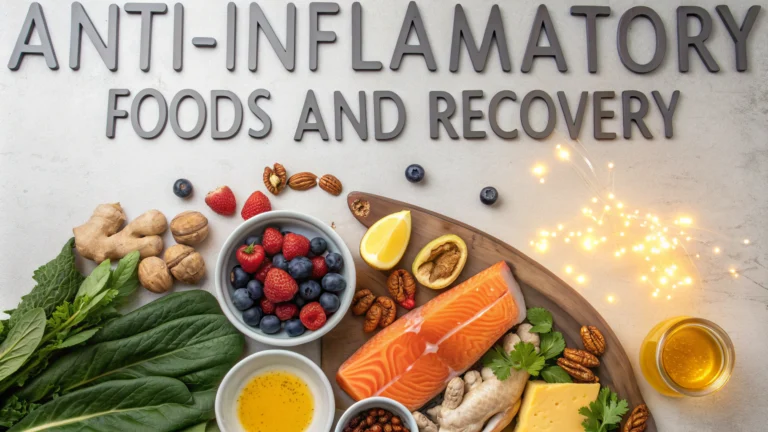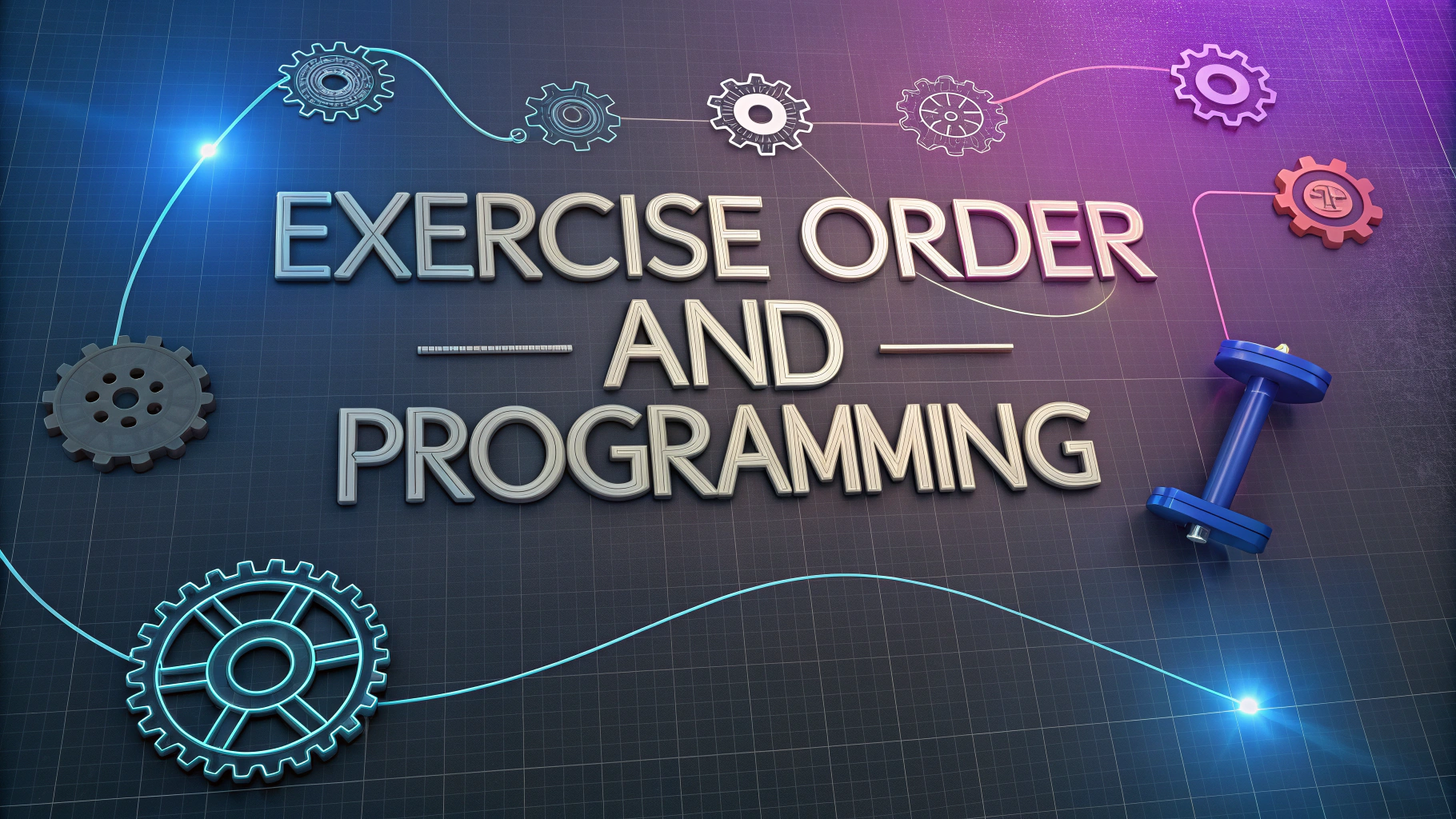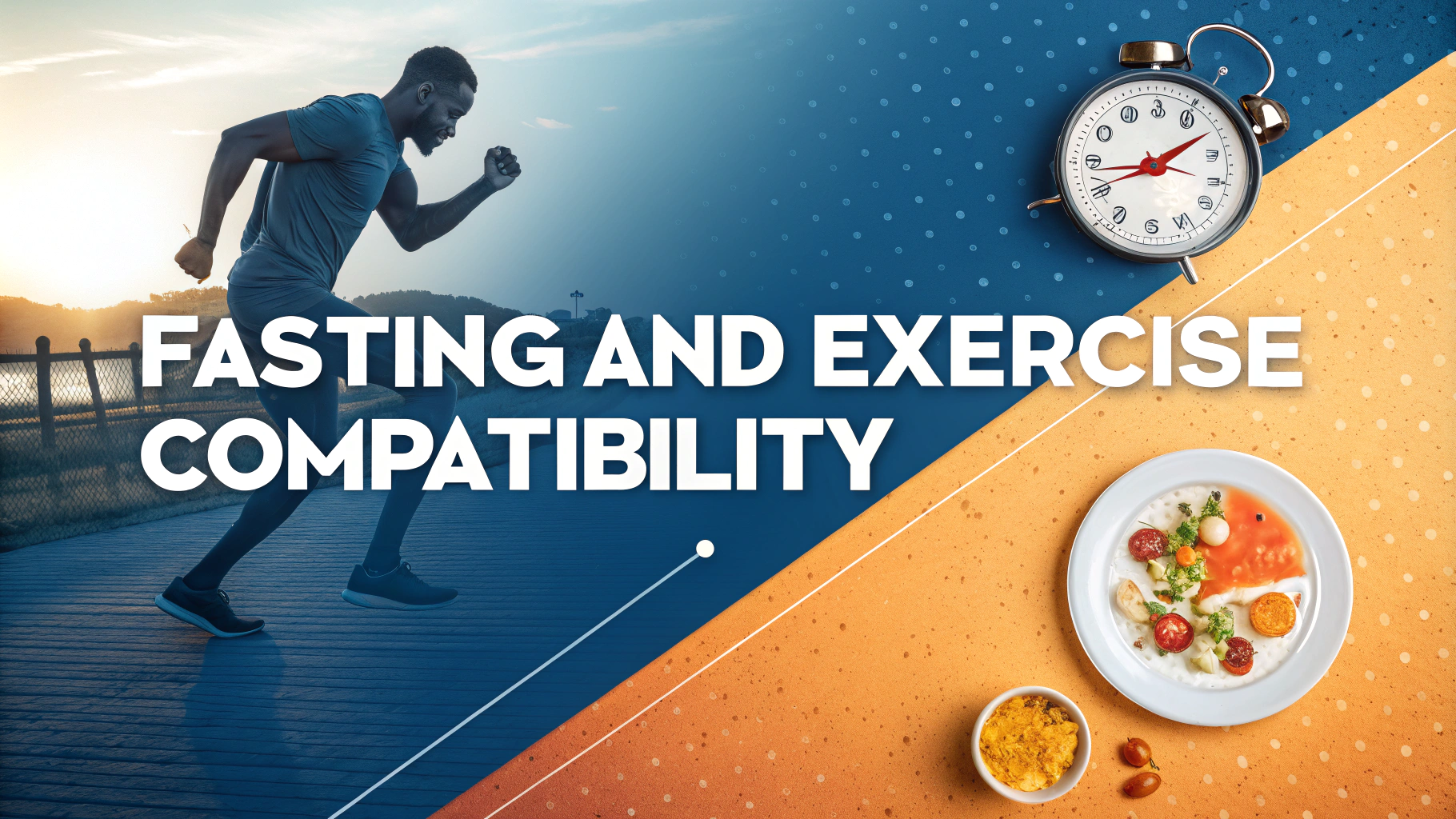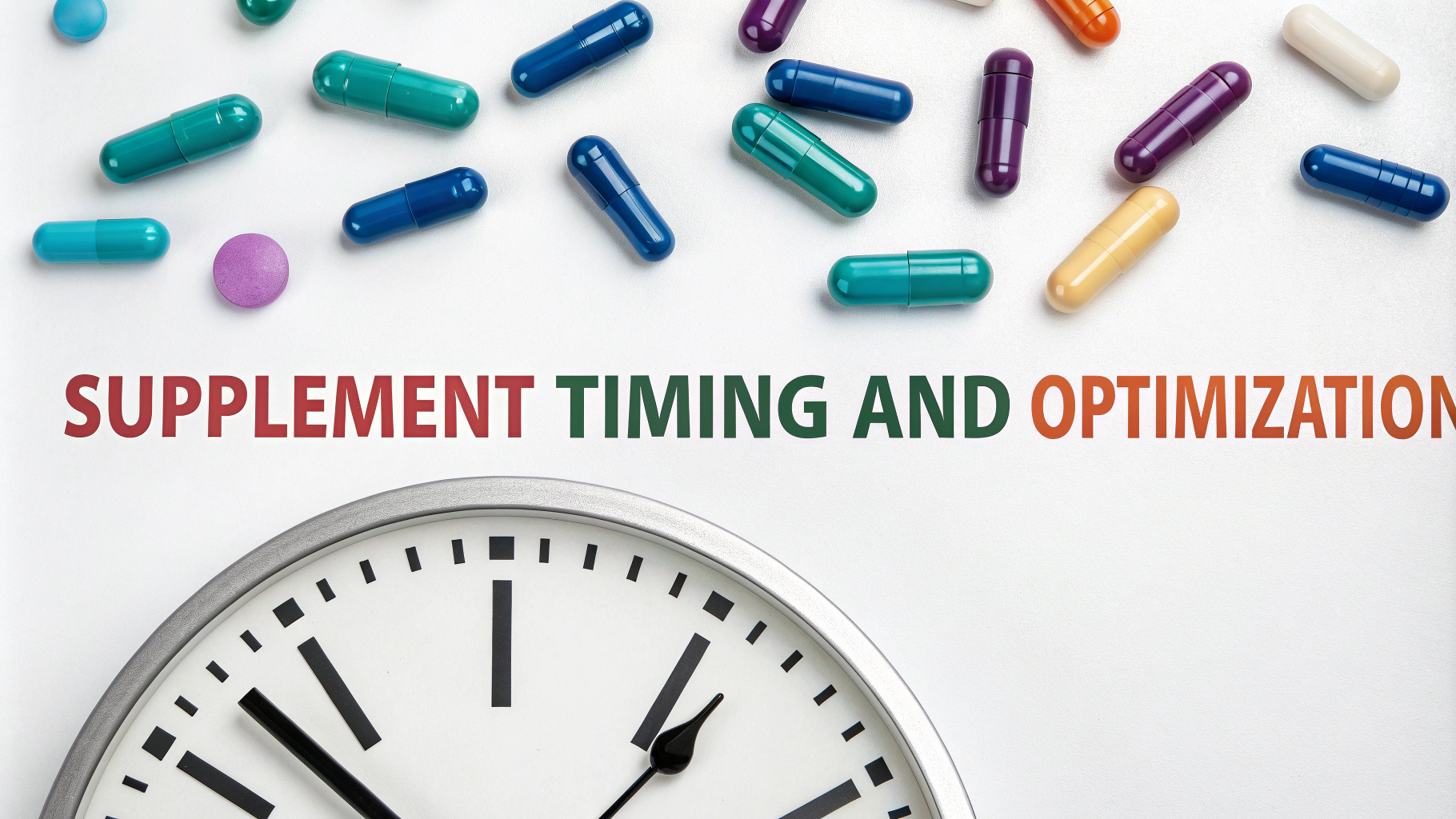Proper nutrition plays a key role in helping your body recover from exercise and reduce inflammation.
Foods with anti-inflammatory properties can speed up muscle recovery, reduce soreness, and help prevent injuries.
Top Anti-inflammatory Foods for Athletes
- Berries – Blueberries, strawberries, and raspberries contain powerful antioxidants called anthocyanins
- Fatty Fish – Salmon, mackerel, and sardines provide omega-3 fatty acids
- Leafy Greens – Spinach, kale, and collard greens offer vitamin K and antioxidants
- Tart Cherries – Studies show they reduce muscle pain and improve recovery
- Turmeric – Contains curcumin, a natural anti-inflammatory compound
- Ginger – Helps reduce exercise-induced muscle soreness
Timing Your Anti-inflammatory Foods
| Timing | Foods | Benefits |
|---|---|---|
| Pre-workout | Berries, green tea | Prepare body for exercise stress |
| Post-workout | Tart cherry juice, fatty fish | Speed up recovery |
| Daily maintenance | Leafy greens, turmeric | Reduce overall inflammation |
Quick Anti-inflammatory Snack Ideas
- Greek yogurt with mixed berries
- Smoothie with tart cherries and spinach
- Turmeric latte with ginger
- Trail mix with walnuts and dried berries
- Green tea with lemon
Practical Tips for Implementation
Start by adding one anti-inflammatory food to each meal rather than overhauling your entire diet at once.
Pair turmeric with black pepper to increase its absorption by up to 2000%.
Consider frozen berries and cherries as they’re often more affordable and just as nutritious as fresh options.
Foods to Minimize
- Processed sugars
- Refined carbohydrates
- Excessive alcohol
- Trans fats
- Processed meats
For personalized nutrition advice, consult a registered dietitian or sports nutritionist in your area.
Sources: American College of Sports Medicine (acsm.org), Academy of Nutrition and Dietetics (eatright.org)
Meal Planning for Anti-inflammatory Benefits
Creating a weekly meal plan that incorporates anti-inflammatory foods helps ensure consistent intake and maximum benefits.
Sample Day Plan
- Breakfast: Oatmeal with berries, walnuts, and a turmeric latte
- Lunch: Salmon salad with dark leafy greens and olive oil dressing
- Snack: Tart cherry smoothie with ginger
- Dinner: Grilled mackerel with roasted vegetables and quinoa
Supplementation Considerations
While whole foods should be the primary source of anti-inflammatory compounds, certain supplements may be beneficial:
- Omega-3 supplements (if not consuming fatty fish regularly)
- Curcumin extracts
- Tart cherry concentrate
- Green tea extract
Long-term Benefits
Consistent consumption of anti-inflammatory foods can lead to:
- Reduced recovery time between workouts
- Lower risk of chronic injuries
- Improved joint health
- Enhanced immune function
- Better overall athletic performance
Conclusion
Incorporating anti-inflammatory foods into your diet is a powerful strategy for supporting athletic performance and recovery. Focus on whole, nutrient-rich foods, and maintain consistency in your eating patterns for optimal results.
Remember that individual responses to foods vary, so monitor your body’s reactions and adjust accordingly. When in doubt, start slowly and progressively increase your intake of anti-inflammatory foods.
FAQs
- What are the best anti-inflammatory foods to aid in workout recovery?
The best anti-inflammatory foods include berries (especially blueberries and cherries), fatty fish (salmon, mackerel), leafy greens, turmeric, ginger, nuts (particularly walnuts), olive oil, and green tea. - How soon after exercise should I consume anti-inflammatory foods?
Consume anti-inflammatory foods within 30-60 minutes post-workout for optimal recovery benefits, though their effects are beneficial throughout the day. - Can anti-inflammatory foods help reduce muscle soreness?
Yes, anti-inflammatory foods can help reduce delayed onset muscle soreness (DOMS) by decreasing inflammation and oxidative stress in muscle tissue. - What role do omega-3 fatty acids play in recovery?
Omega-3 fatty acids reduce inflammation, support joint health, enhance muscle protein synthesis, and help decrease muscle soreness after intense exercise. - Are there specific fruits that are best for post-workout inflammation?
Tart cherries, pineapple (containing bromelain), and berries (rich in anthocyanins) are particularly effective at reducing post-workout inflammation. - How does turmeric help with exercise recovery?
Turmeric contains curcumin, which has powerful anti-inflammatory properties that can reduce joint pain, muscle soreness, and inflammation while supporting immune function. - What anti-inflammatory spices can I add to my meals?
Ginger, turmeric, cinnamon, garlic, black pepper, cloves, and cayenne pepper all have proven anti-inflammatory properties. - Does green tea help with exercise recovery?
Yes, green tea contains catechins and antioxidants that help reduce inflammation, support immune function, and aid in muscle recovery. - How many servings of anti-inflammatory foods should I eat daily?
Aim for 5-7 servings of various anti-inflammatory foods daily, including at least 2-3 servings of fruits and vegetables, plus sources of healthy fats and spices. - Can anti-inflammatory foods help prevent injuries?
Yes, regular consumption of anti-inflammatory foods can help maintain joint health, reduce chronic inflammation, and support tissue repair, potentially lowering injury risk.







